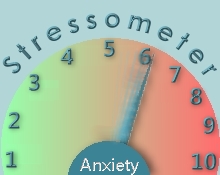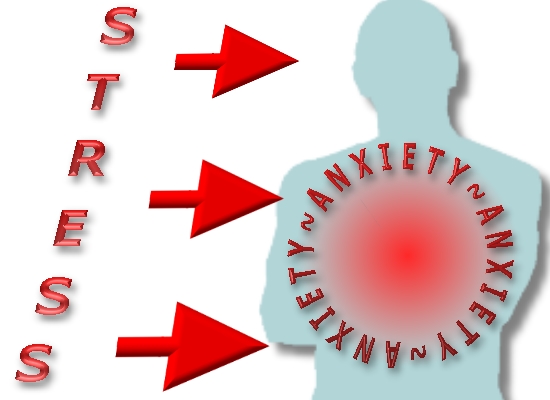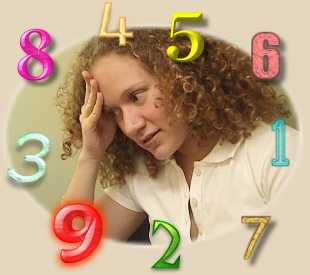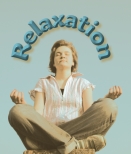Your Are Here: Counselling > Info Base > StressHome Page - Anxiety - Assertiveness - Depression - Sexual AddictionPhilosophy of Counselling - Types of TherapyAbout Me - Contact MeCoachingSummary of this pageWe cannot avoid stress -- modern life is inherently stressful -- but it is important to learn to manage stress if we are to avoid a range of problems, both physical and psychological ...read moreStress is defined as anything that takes us beyond our comfort zone; anything unusual, challenging or radically different is stressful. The more outside our comfort zone we are and the longer the duration of this, the greater the stress ... read more Our internal response to external stress is anxiety. This anxiety triggers major physical and psychological changes -- the so-called "fight or flight response" -- designed to increase our chances of survival in physically threatening situations. Stress triggers these changes even though there is no threat to our survival. Without physical exertion to reverse these changes, we remain "on alert", stressed and anxious ... read more Stress and our internal response to it -- anxiety -- accumulates. It's a bit like a reservoir, filling up with water (stress) until it eventually overwhelms its capacity. It is important to be aware of your "level" ... read more Once aware of your level you must take control of managing it; release stress and reduce anxiety using, for example, exercise, breathing techniques, progressive muscle relaxation, yoga etc.You may also be able to manage your stress by examining the expectations you have of yourself and working with partners, family or co-workers to organise things in ways that help reduce the demands placed upon you... read more Stress Life itself is inherently stressful; dealing with children, queueing in traffic, a busy supermarket, an irate boss, too much work or a deadline that is hard to meet -- all of these are stressful. In addition, life also throws at us those occasional or unusual events like moving house, losing your job, the ending of a relationship, illness in yourself or a loved one or a death in the family. A certain amount of stress can actually make life more interesting; we tend to work faster and be more focused when there is some stress but increase the level of stress too much and we start to suffer. Performance declines -- whether it is on the job, caring for family or studying for a qualification. Not only that, we can start to experience a wide range of physical and psychological symptoms, many of which are unpleasant, inconvenient or worrying. Some of these you probably know about, like headaches for example. Others are less well-known; tingling in the face or extremities, a feeling of strangeness or unreality as if you are outside your body, poor concentration and short-term memory -- all of these are just examples of how stress can manifest itself physically. Moreover, you might find yourself wanting to withdraw socially or becoming frightened, maybe losing confidence when doing something that you have done a great many times before without apparent problem. Life itself is inherently stressful; dealing with children, queueing in traffic, a busy supermarket, an irate boss, too much work or a deadline that is hard to meet -- all of these are stressful. In addition, life also throws at us those occasional or unusual events like moving house, losing your job, the ending of a relationship, illness in yourself or a loved one or a death in the family. A certain amount of stress can actually make life more interesting; we tend to work faster and be more focused when there is some stress but increase the level of stress too much and we start to suffer. Performance declines -- whether it is on the job, caring for family or studying for a qualification. Not only that, we can start to experience a wide range of physical and psychological symptoms, many of which are unpleasant, inconvenient or worrying. Some of these you probably know about, like headaches for example. Others are less well-known; tingling in the face or extremities, a feeling of strangeness or unreality as if you are outside your body, poor concentration and short-term memory -- all of these are just examples of how stress can manifest itself physically. Moreover, you might find yourself wanting to withdraw socially or becoming frightened, maybe losing confidence when doing something that you have done a great many times before without apparent problem.
So Just What is Stress?Stress is anything that tests us or takes us outside of the norm. This is obviously why changing job, moving house or dealing with a bereavement are so stressful; they don't happen very often and they are outside of the range of our normal experience. However, anything that puts us under pressure can be stressful. For example, having to perform extra duties to cover for a colleague who is off work, dealing with more things that we would usually deal with, performing a routine task more quickly than usual, learning a new route - anything that is different to the routine. The greater the difference, the greater the stress. Plus which, some of us are better at adapting to new situations than others and this also has to be factored in. So why is change or difference so difficult for us? To answer this, we have to think back hundreds of thousands of years to our more savage past as a species. In those times, anything that was different might potentially be a threat to our survival. So for example, that bush look a bit different to yesterday? Maybe there's a wild animal hiding behind it? For situations like these, nature gave us a fantastic "emergency response system" designed to make our bodies operate at peak efficiency in a crisis, therefore enhancing our chances of survival.The Fight or Flight ResponseWhen we perceive that there is a threat to our existence our bodies respond by producing the hormone adrenalin. This prepares us to either fight or flee from the danger by triggering a number of physical changes designed to increase our chances of survivalThe so-called "fight or flight response" was fantastic for dealing with a sabre toothed tiger or any other physical threat. Your body produces adrenalin and this causes a whole series of changes that are designed to increase your chances of survival. There is some information in the picture to the right but for more detail, including information on the longer term impact of stress on health, click here to visit the "what happens when I get anxious" page. And after physical exertion, nature has provided as with another response system, designed to heal wounds, reduce pain, calm us down and reverse all the changes triggered by the emergency.The problem in this day and age is that we often have the "emergency response" but not the "calm down" response to get us back to normal. This is because the "emergency" is triggered by stress that does not require a massive physical response. So you come home from work, or college, or get to the end of your day, with the adrenalin still coursing through your veins. So far as your body is concerned, the "emergency" is still continuing. You feel anxious and edgy, irritable, maybe have aching shoulders and a tension headache. The following day, off you go again and the stress (together with the anxiety caused by it) accumulates. These physical responses to stress can accumulate to the point where you start to experience physical problems which seem serious or worrying. You can even begin to lose rationality and enter a state of panic. In fact, in extreme circumstances you may actually experience a so-called "panic attack". In a panic attack, your reactions are so severe that they are often mistaken for a heart attack with severe breathlessness, chest pain and even pain in the arms. There can be loss of sensation, dizziness, tingling in the face, visual and auditory disturbances. There is more information about panic attacks click here. |





 When you are "full to the brim" with stress, it takes only one more drop to cause a flood. That "last drop" can be anything, even something trivial
When you are "full to the brim" with stress, it takes only one more drop to cause a flood. That "last drop" can be anything, even something trivial What's your number? The best way to control stress and anxiety is to prevent it from accumulating. Take responsibility for managing it, putting you in control
What's your number? The best way to control stress and anxiety is to prevent it from accumulating. Take responsibility for managing it, putting you in control 